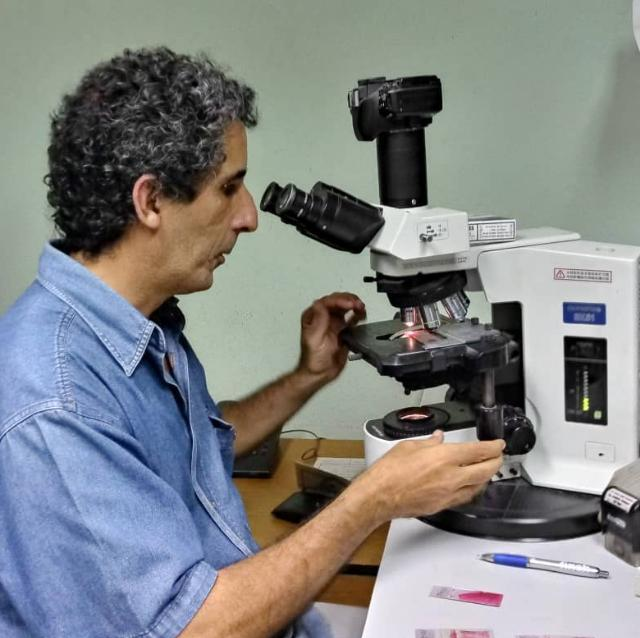Intended for the diagnosis and study of cancer, the laboratory has treated more than 300 patients from all over the country, with a technique based on the adminitration of antibodies or biomarkers to a group of subcellular structures and thus perform more a detailed analysis of the disease.
According to Dr. Daniel Artiles, a first-degree specialist in Pathological Anatomy and head of the laboratory, the results allow the treatment to be directed to a more personalized therapy, as well as to carry out different reference, confirmatory or marker studies that will later have an impact on the treatment.
Although the laboratory currently focuses its work on the analysis of lymphomas and breast tumors, its group plans to expand its services to patients with carcinomas and sarcomas by 2025, a step forward to strengthen the healthcare system in Cuba with a facility that can also analyze other types of oncological diseases.
Dr. Clara García, a second-degree specialist in Pathological Anatomy and a worker at the facility, explained that the existence of an immunohistochemistry laboratory in central Cuba reduces the waiting time for patients considerably, since it used to take more than a month from the taking of the sample to the delivery of the results, but it only takes 48 hours now.
With only nine workers, six of them with some degree of specialization, the immunohistochemistry laboratory in Villa Clara processes samples from some 15 patients from various parts of the country every day.
This figure is in line with the demand anticipated before its inauguration at the facilities of the Arnaldo Milián Castro Provincial Clinical Surgical University Hospital, one of the main medical institutions in central Cuba.
Cuba only has two other similar laboratories, one at the Hermanos Ameijeiras Hospital and another one at the National Institute of Oncology and Radiobiology (INOR), both in Havana.
jg/lam/ysd










